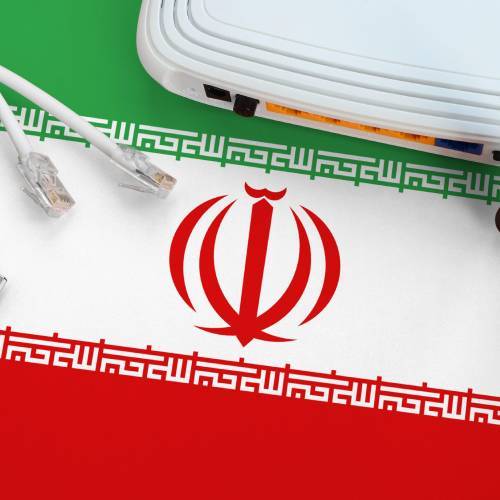The Iranian government is restricting Internet and mobile access in response to nationwide protests. Whether Starlink can help is unclear.

Internet and telecommunications services in Iran have been significantly restricted by the government over the past week as nationwide demonstrations continue in response to the death of 22-year-old Mahsa Amini. Amini was reportedly beaten while in police custody after being arrested for allegedly violating hijab rules.
According to Internet monitor NetBlocks, which has been tracking disruptions in the country since demonstrations began, there has been a "near-total disruption" to the Internet in parts of Kurdistan, regional telecommunications blackouts throughout Sanandaj and a "partial disruption" to Internet services in Tehran.
NetBlocks also reported outages on several mobile networks, including one of the nation's largest mobile operators Mobinnet, which experienced a "nation-scale disruption" on Sunday. Iran's leading operator, MCI, as well as Rightel and Irancell have also been "largely shut down," said NetBlocks. Content delivery network Cloudflare also documented outages on Rightel, Irancell and MCI networks as of Monday afternoon.
⚠️ Confirmed: Real-time metrics show a nation-scale disruption to Mobinnet, one of the largest network operators in #Iran, as widespread internet platform restrictions and rolling blackouts continue amid protests over the death of #MahsaAmini
— NetBlocks (@netblocks) September 25, 2022
📰 Report: https://t.co/8cCHIJA2Oi pic.twitter.com/GNxFLr8s7E
Some Internet suppression is happening regionally in response to protests. On Monday, NetBlocks documented a loss of Internet connectivity at Amirkabir University as students spoke out and joined demonstrations.
⚠️ Confirmed: Live metrics show the loss of internet connectivity at #Amirkabir University in #Iran as students strike over the death of #MahsaAmini.
— NetBlocks (@netblocks) September 26, 2022
Meanwhile:
▶️ Daily mobile disruptions continue
▶️ Social media restrictions remain in place
📰 Report: https://t.co/8cCHIJA2Oi pic.twitter.com/fGKr4QGW9b
The ongoing Internet restrictions are reportedly the largest in Iran since fuel price protests in November 2019, during which 1,500 people were killed, according to Reuters.
Can Starlink help? Musk says maybe
In response to the information crackdown, the Biden administration on Friday relaxed sanctions on Internet services in Iran.
Speaking about the decision, US Secretary of State Antony Blinken said on Twitter that the US "took action today to advance Internet freedom and the free flow of information for the Iranian people, issuing a General License to provide them greater access to digital communications to counter the Iranian government's censorship."
SpaceX CEO Elon Musk replied to the tweet: "Activating Starlink."
But whether that intervention will make a difference remains to be seen. Even Musk seems skeptical.
As he told Karim Sadjadpour, a senior fellow at Carnegie Endowment for International Peace, in an interview this weekend – which Sadjadpour summarized on Twitter – "Starlink is now activated in Iran. It requires the use of terminals in-country, which I suspect the [Iranian] government will not support, but if anyone can get terminals into Iran, they will work."
That is a significant "if," considering it will essentially require the smuggling of terminals into the country.
Even subscribing to the service is likely to be a challenge. As Iran International reported, the Iranian government responded to the move by the US and Starlink by blocking access to Starlink's website.
Meanwhile, Al Jazeera reports that the Starlink news has also created a new cybersecurity threat for Iranians, with hackers publishing malware "under the guise of software required to connect to Starlink in order to dupe users."
Access to communications services is likely to be further restricted as demonstrations persist and gain international attention. According to CNN, Iranian authorities said they would continue to restrict Internet access "until calm is restored to the streets."
Related posts:
— Nicole Ferraro, editor, Light Reading, and host of "The Divide" podcast.
About the Author(s)
You May Also Like










